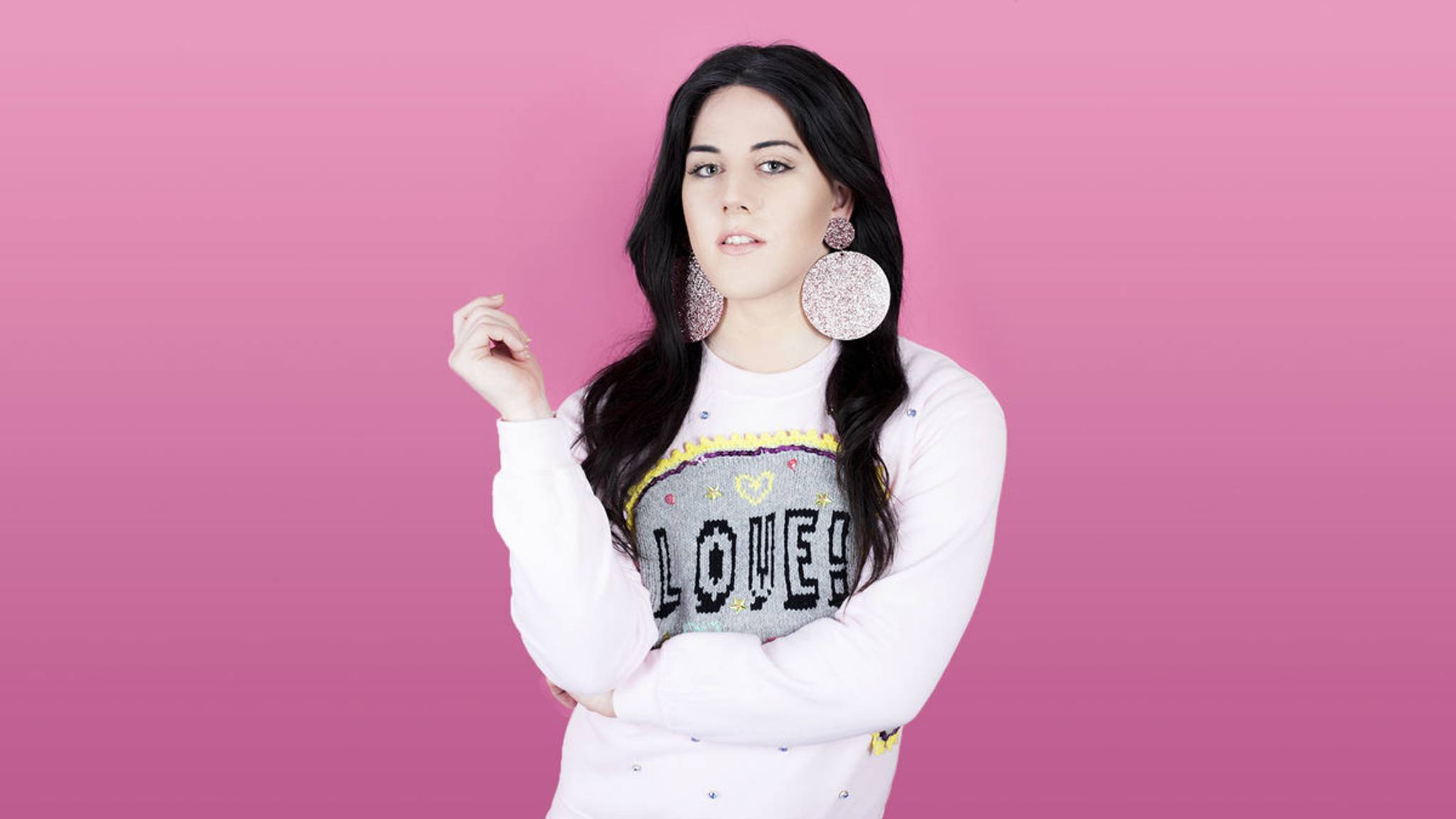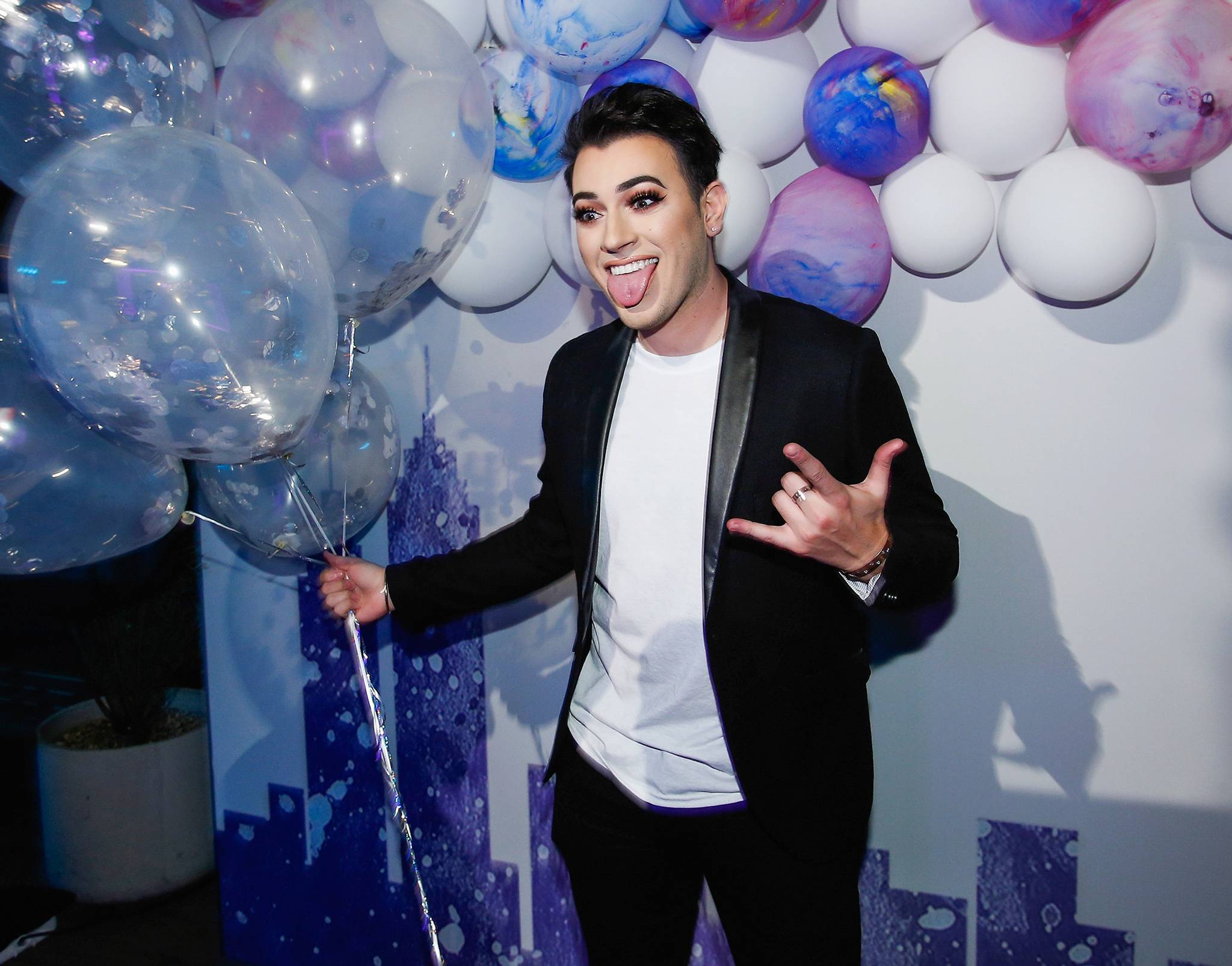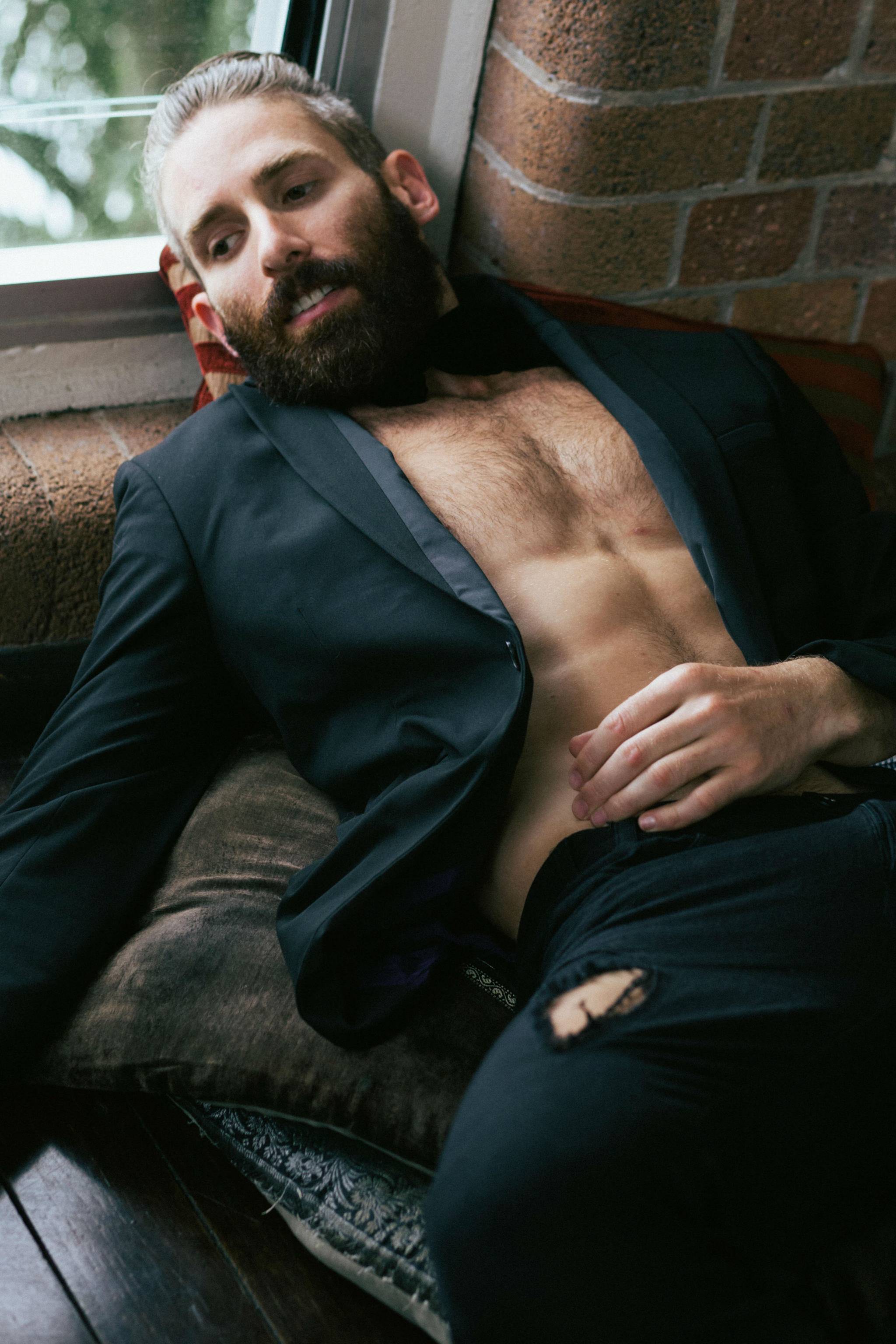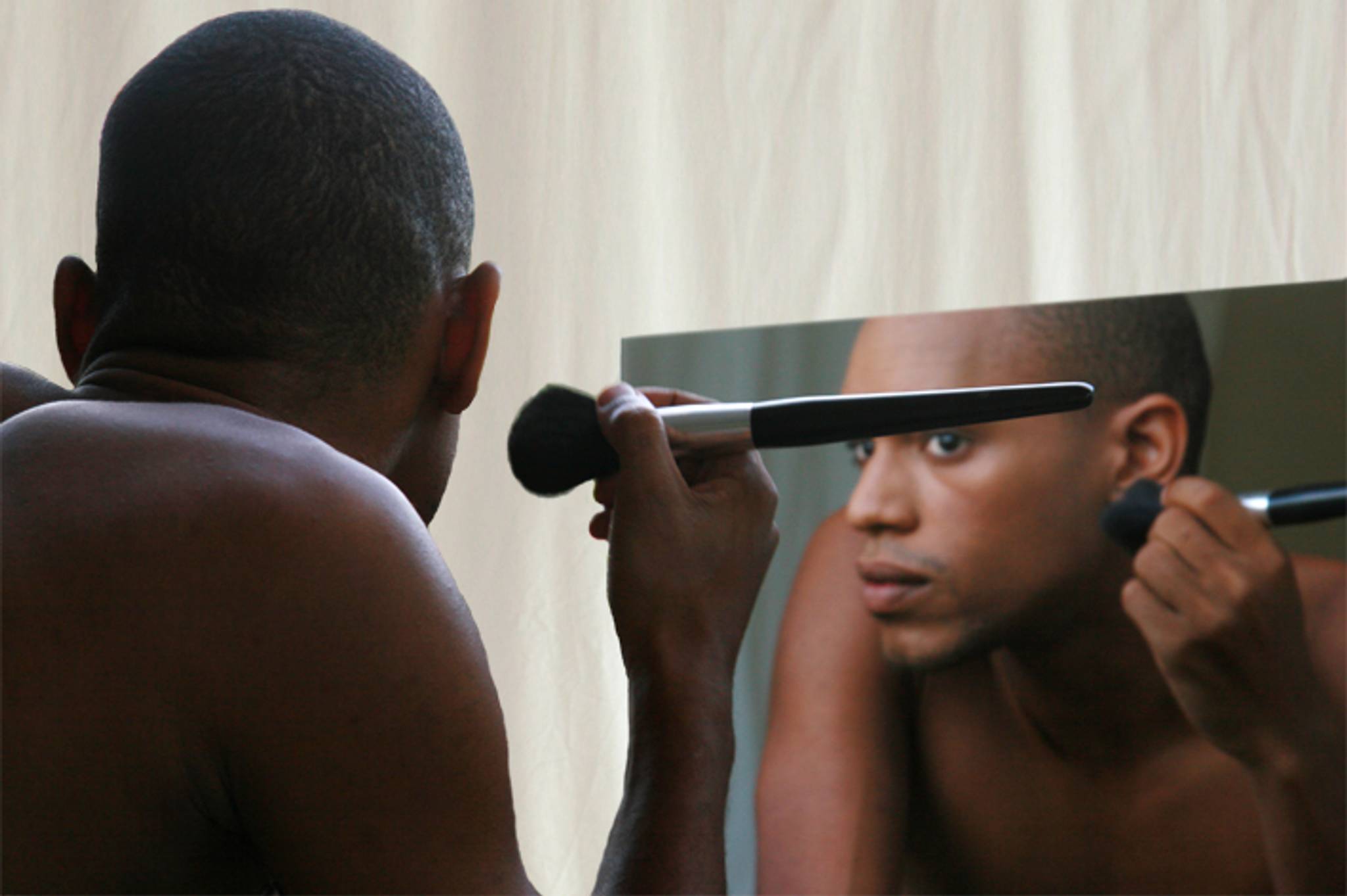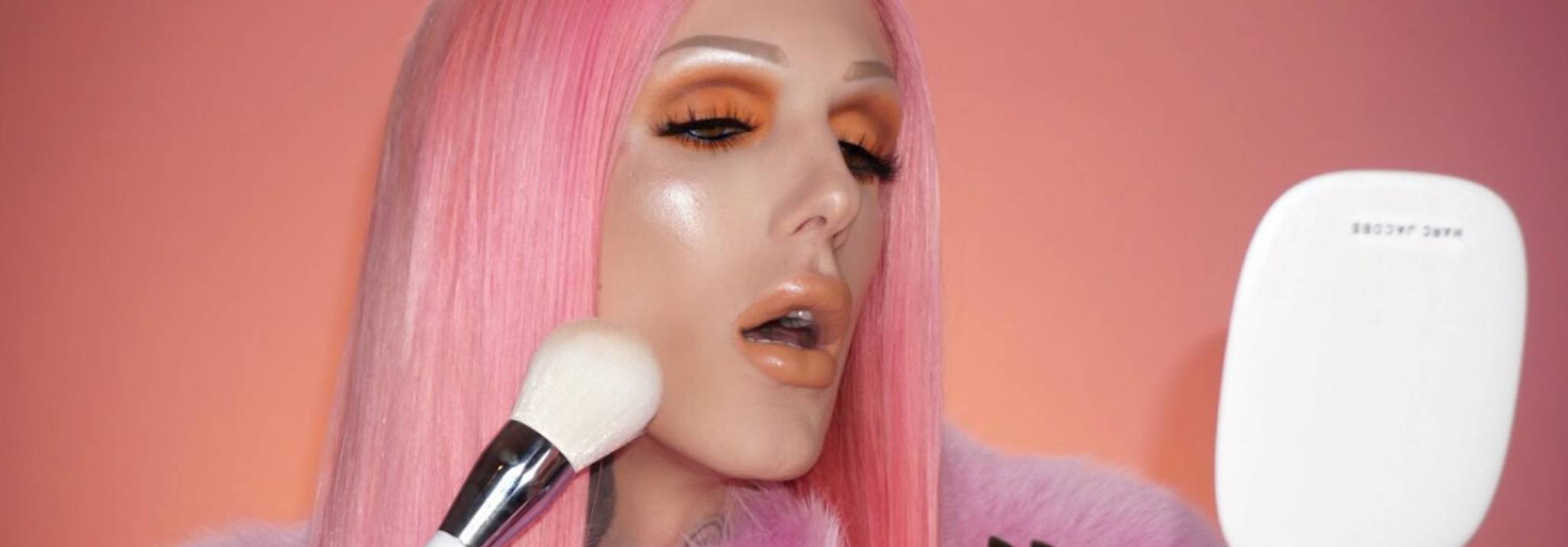
Boys in make-up used to be synonymous with the drag scene, But a new breed of male make-up maverick is now taking the spotlight, converting vast social followings into successful cosmetics brands aimed at women and men alike. Frequently selling out within minutes, Jeffree Star Cosmetics is one of the challenger brands changing the face of beauty in the Instagram age. We explore the insights behind the make-up maven, and explain how men in make-up are challenging the status quo.
Jeffree Star initially found fame as part of the early MySpace music scene after the success of his debut track, ‘We Want Cunt’. In 2014, he made the jump from music into make-up and launched Jeffree Star Cosmetics. So far, it’s proven an unmitigated success, with the most popular products selling out within minutes after a restock is announced. His unconventional approach and controversial edge have built a combined following of over eight million fans across YouTube and Instagram. “I’m doing videos and having fun with it,” says Star. “And no hate to anyone else, but all these big YouTubers do the same shit; glowy, bronzy, boring make-up. I’m like, ‘Can we have something else, please?’” It’s arguably this unfiltered ‘realness’ that accounts for his huge social following. Because for this new group of make-up vloggers, it’s their personality that leads the charge.
Male make-up entrepreneurs are forging the way for similar attitudes within the beauty industry and some of the most prominent male make-up artists are embracing a playful approach to cosmetics. "It's about transforming your face to make it look a different way," says Manny Gutierrez, a male beauty blogger who’s also a face for beauty brand Maybelline. "It's just giving you creative freedom." Teenaged student James Charles similarly shot to fame after becoming the first coverboy for CoverGirl Cosmetics. “The fact that I am the first boy is so cool,” he says. “It shows that this industry is actually becoming genderless, and we’re really making the push toward equal opportunities for everybody.”
Gen Z is the most diverse generation yet, and members of this cohort are known for their proactive stance on gender fluidity; 81% agree that ‘gender doesn’t define a person as much as it used to’. And with this group placing more trust in peer-created content, it’s giving minority groups the chance to have their voices heard. The growth of male-fronted make-up brands is symptomatic of these shifts, and it’s being reflected in the cosmetics market. It means challenger brands like Jeffree Star can gain widespread attention – and build the sales to match. “I feel like it’s the late ‘90s all over again,” says Walter Dwyer, president of global cosmetic packaging supplier Cosmopak USA. “Back then so many indie brands were just starting out and it definitely seems like that is happening right now.”
Laurie Clarke is a Psychology graduate currently based in Scotland. She is obsessed with what makes people tick, especially when it comes to how people make decisions.
